Inside Newhalen School, past puddles of melting snow outside, the main hallway was lined with duffels, sleeping bags, snow boots, and parkas. The gear was grouped under handwritten signs: “Tanalian, Perryville, Chignik Lagoon, Chignik Lake, Igiugig, Meshik, Nondalton, Levelock, Kokhanok.” A clamor of voices streamed out of the gym as cafeteria staff dished up plates for about 100 students and 30 adults packed into tables and bleachers in the corner of the basketball court. Over the next few days, the gym would also serve as a dance hall, sports venue, community gathering space, dormitory, and movie theater for a one-of-a-kind week of education, extracurriculars, sports, and social activities: S.N.A.P. Meet.
Opportunities to connect with larger peer groups, experience new activities and participate in sports are profoundly important for all students. The positive impacts these opportunities can have on students’ socioemotional development and career exploration are especially felt by students in remote Alaskan communities with small populations and expensive travel options. Lake and Peninsula School District’s annual S.N.A.P. Meet—short for Science, Native Youth Olympics, Academics, and Prom—showcases the impact of in-person educational enrichment on their students.
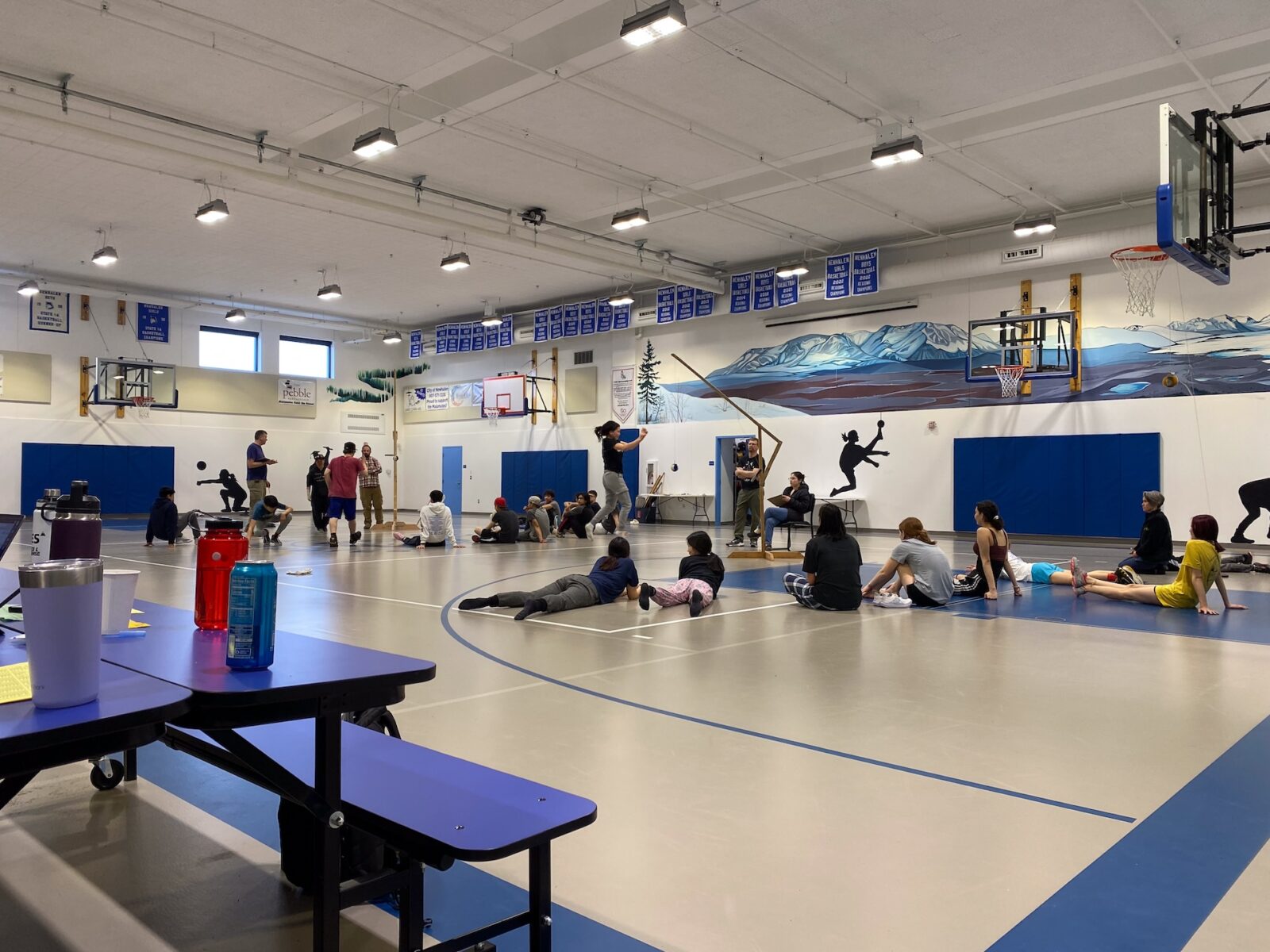
LPSD students watch Native Youth Olympics competitions in the Newhalen School gym.
A Uniquely Alaskan Experience
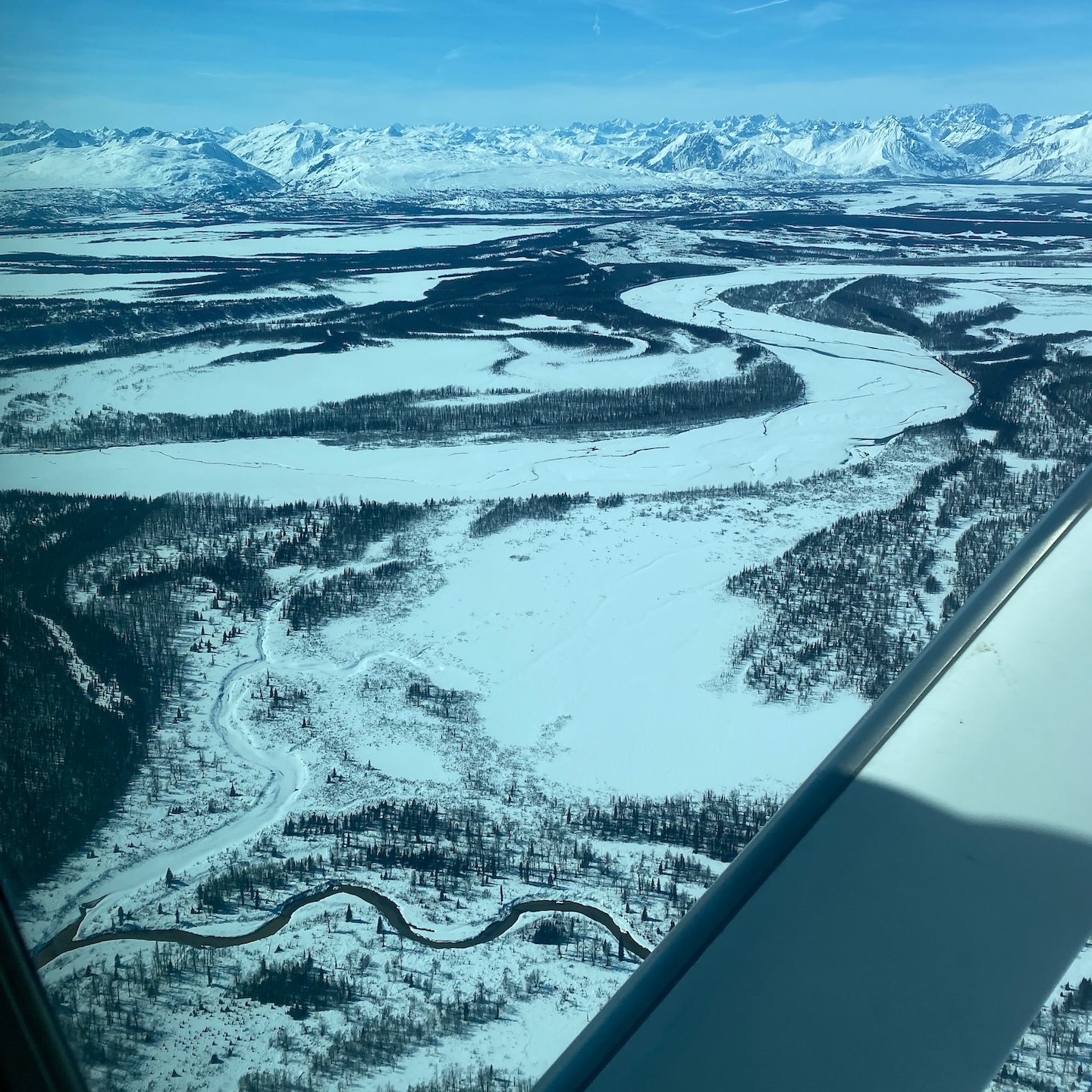
The view on the flight from Anchorage to Newhalen.
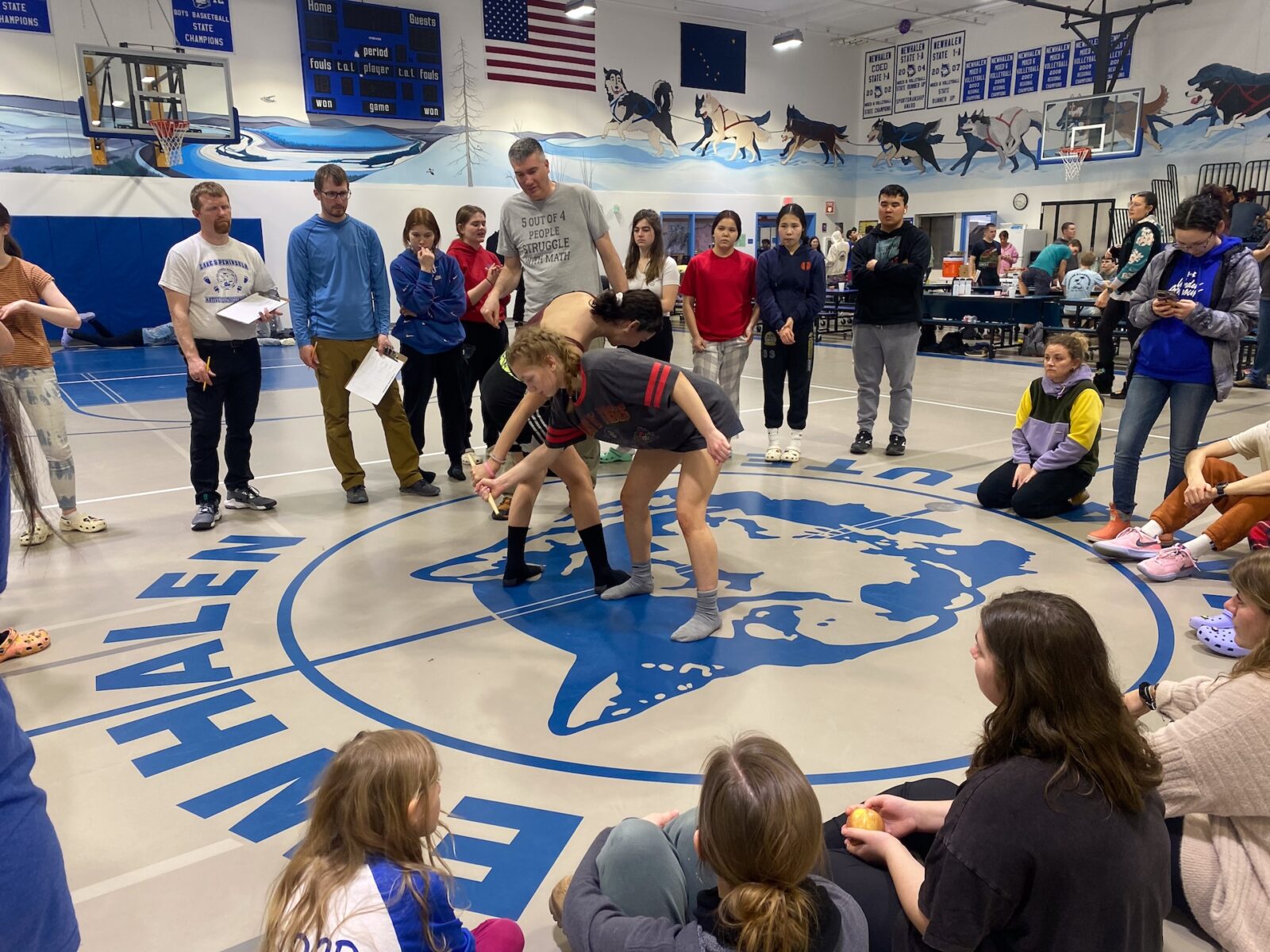
Students compete in traditional athletic contests during S.N.A.P. Meet to qualify for the statewide NYO Senior Games.
LPSD’s region stretches for approximately 400 miles in southwest Alaska, from Lake Clark down to the Alaska Peninsula. Newhalen School, on the shore of Lake Iliamna, has the biggest student population in the district at 89 K-12 students. And for one week each April, the number of students in town nearly doubles as 7th-12th graders from across the district fly in and fill every available space. The girls and their chaperones unfurl sleeping bags in classrooms each night and stow their gear each morning before breakfast. The boys camp out in the gym, setting up a fort with gym mats and rigging the motion-sensored lights to stay off through the night.
“The idea is that it allows students to interact with other students in different settings to help them develop as leaders and team members through group activities with new people,” said Newhalen principal and longtime S.N.A.P. Meet leader Ed Lester. Lester is nearly synonymous with S.N.A.P. Meet, having been involved in planning and executing the event for decades. The gathering kicked off in the 1980s, and was originally called A.A. Meet, or Athletics and Academics Meet. It used to take place three times a year, but as travel costs increased, the meetups consolidated and eventually stretched to span a full week.
The 2024 S.N.A.P. Meet gathered 7th to 12th grade students from LPSD’s 10 schools along with home-schooled students in the region, including those who had attended schools in communities like Chignik Bay that closed due to low enrollment. All the students and chaperones arrived in Newhalen on Monday, middle school students and chaperones departed on Thursday, and high school students and chaperones departed on Friday. Each day, the agenda was jam-packed from 7 a.m. until well past 10 p.m. The schedule included cultural and activity-based classes, science fair presentations, a talent show, nightly NYO competitions, a district art show, ice breaker activities, student government meetings, a career fair, a Chuyi Tudlatch educational potlatch, an award ceremony, and prom. All of the events were orchestrated by dedicated teacher chaperones from each school, district employees, Bristol Bay Regional Career and Technical Education Program staff, community volunteers, student government leaders, and Newhalen school staff, led by Lester, elementary teacher Marcie Lester, and administrative assistant Evelynn Trefon.
REAP’s Role at S.N.A.P. Meet
Place-based education is a cornerstone of REAP’s mission. Led by REAP’s three full-time energy educators and with contributions from all staff members, the organization is committed to increasing energy literacy and education across the state. By developing and delivering dynamic curriculum and materials, uplifting pathways toward energy careers, and meeting students where they are, REAP strives to provide impactful educational opportunities to both rural and road system students—the perfect pairing for S.N.A.P. Meet.
Newhalen students had already participated in REAP’s Clean Energy Olympics, a statewide engineering design competition, the quarter before S.N.A.P. Meet. With science teacher Sydney Boone as their coach, the team took second place in the high school wind division and won the Picasso Award for their wind turbine blade design. That history of engagement and collaboration was important for REAP’s first S.N.A.P. Meet. “Being able to build on prior relationships with a teacher or a district is hugely helpful,” said ANEEE Project Manager Jenny Starrs, who attended the weeklong affair for REAP.
In Newhalen, Starrs taught a hands-on class about microgrids in rural Alaska to all 90 S.N.A.P. Meet students, in groups of 15-17 students from all different schools. The class included an energy monitoring lab, a virtual walkthrough of Newhalen’s grid using 3D digital twin technology, and snap circuit activities for students to build their own microgrid models. She also hosted a booth about clean energy careers at the career fair and presented on high-demand energy careers in rural Alaska alongside local electric utility Iliamna Newhalen Nondalton Electric Cooperative, Inc., and their power plant operator John Tretikof, who himself graduated from Newhalen School. And she made the most of her travel to Newhalen by teaching elementary students about solar power, discussing energy efficiency with the Newhalen Tribal Council, and pitching in with group activities like prom.
“It was inspiring to see the students come into their own over the course of the week,” Starrs said. “By the time prom hit, most students were dancing and mingling with students from all different schools. And seeing everyone pitch in, from the school chaperones to UAA’s kinesiology students to the U.S. Army recruiter, to make the week meaningful for the students was very special.”
Alongside all the educators who made the week possible, LPSD’s itinerant school counselor Kacy Lou Leyba recruited a diverse group of academic institutions, professional organizations, and regional employers to play a role in the week’s career readiness activities, like the career fair and career presentations. Participating organizations included the Southwest Alaska Area Health Education Center, University of Alaska Anchorage, Kenai Peninsula College, Igiugig Tribal Village Council, and more.
S.N.A.P. Meet’s wide-ranging partnerships, regional engagement, and diverse schedule gave LPSD students bountiful opportunities for growth and connection. Its unique format and history is a testament to LPSD’s ingenuity and adaptation in the face of adversity, and its commitment to providing the very best educational opportunities to the next generation. REAP is honored to have played a small part in the 2024 S.N.A.P. Meet, and looks forward to more collaborations with LPSD in the future.
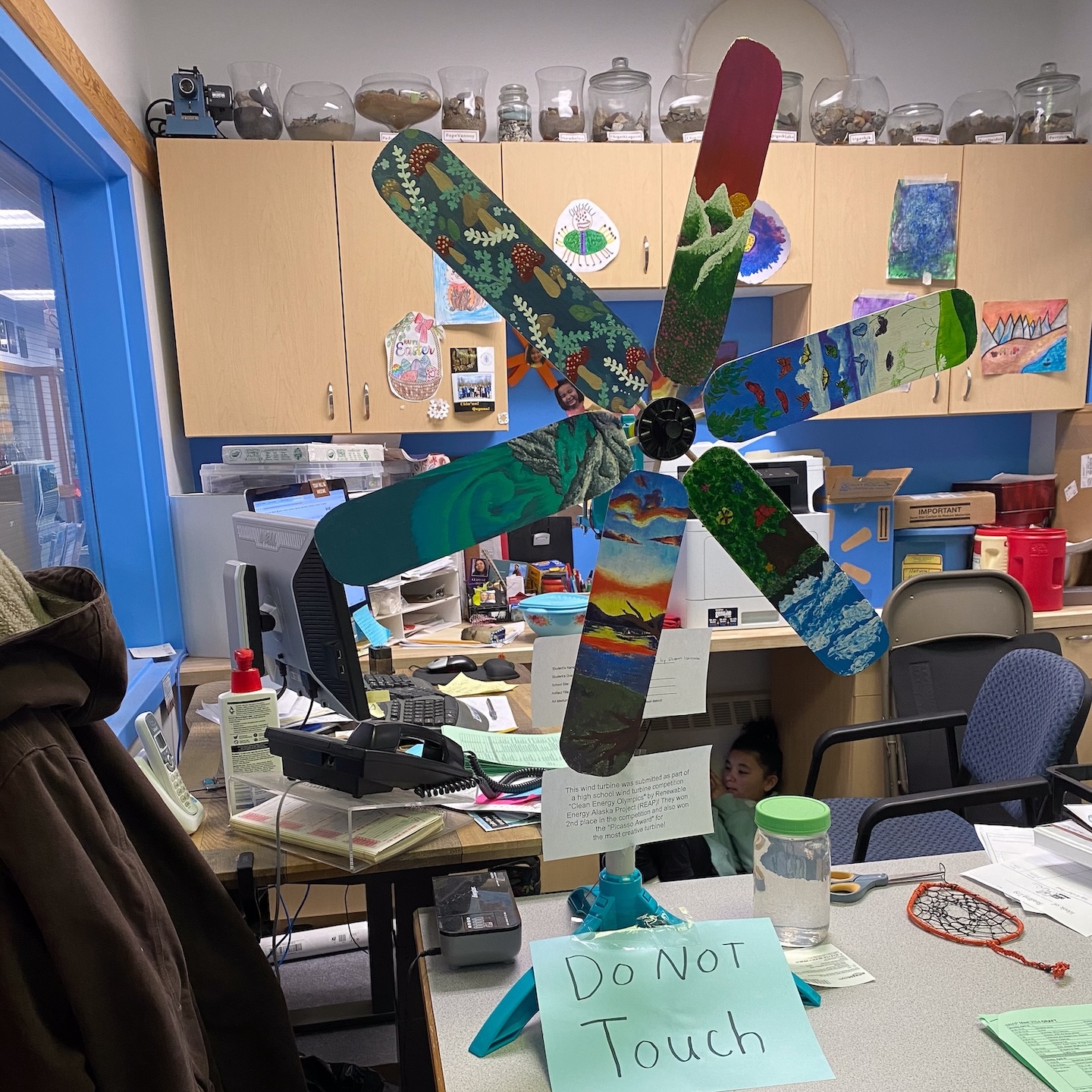
Newhalen’s award-winning wind turbine on display in the school’s front office.
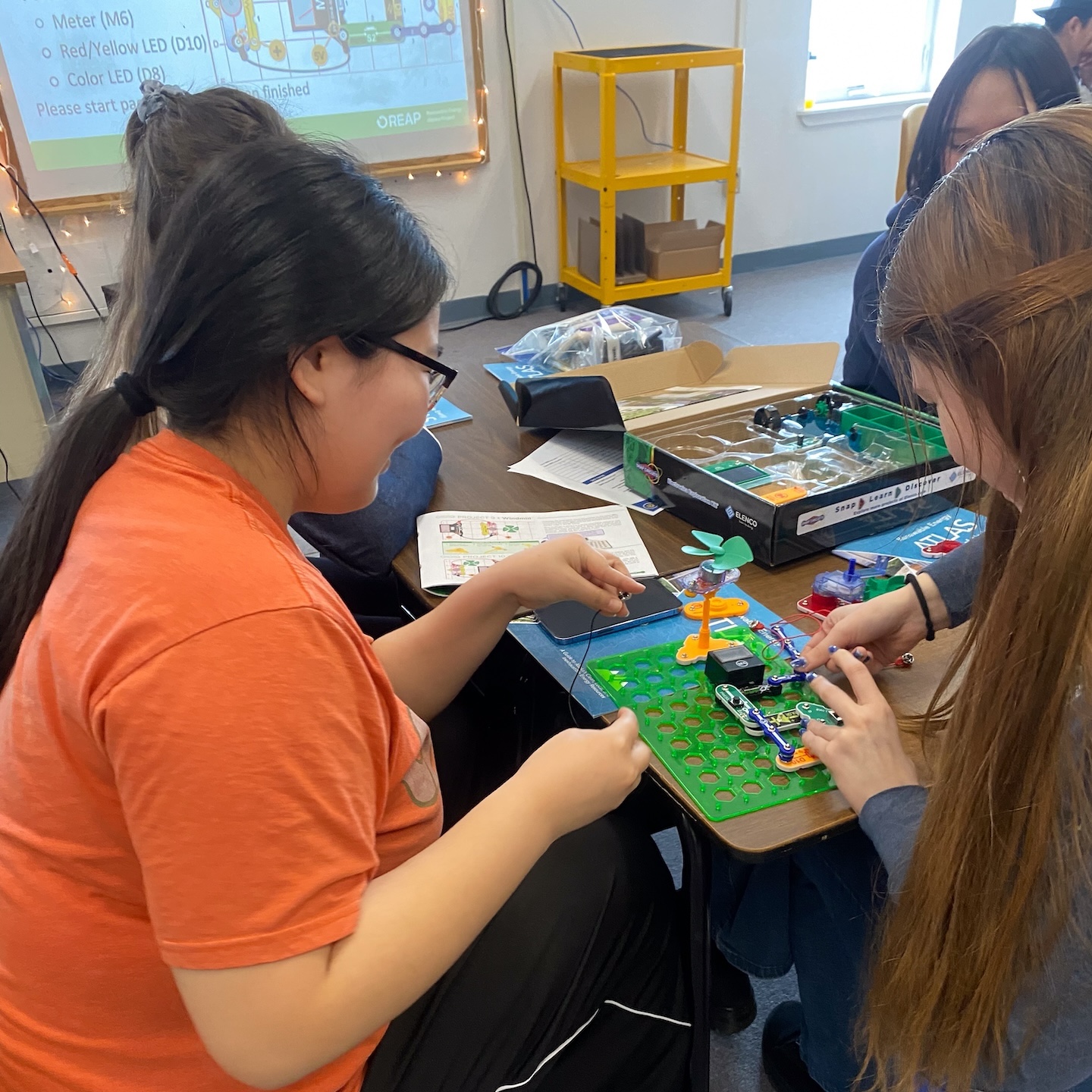
Students complete a snap circuit model of a wind-powered microgrid.
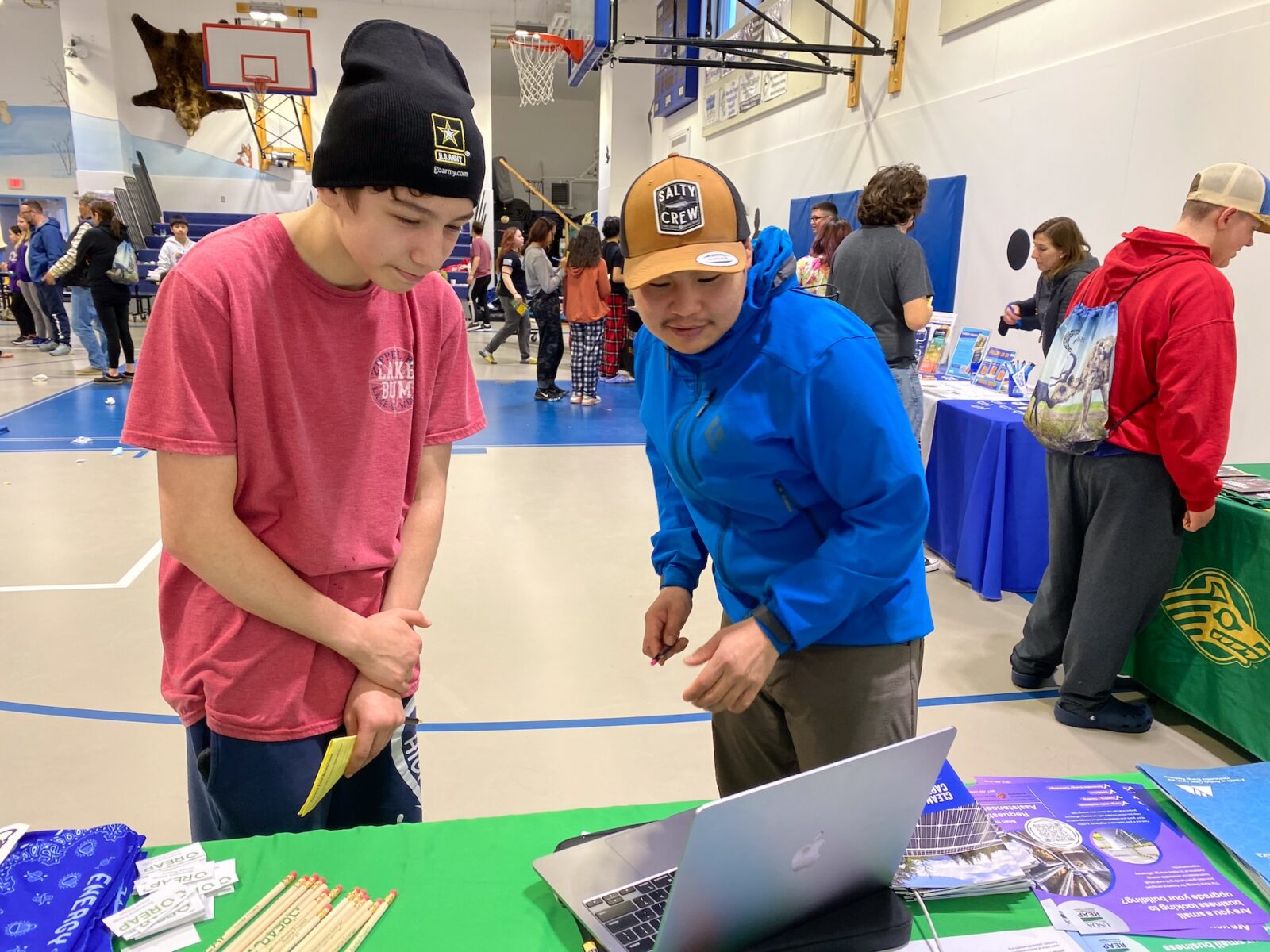
INNEC power plant operator John Tretikof give a student a virtual walkthrough of the Newhalen grid.